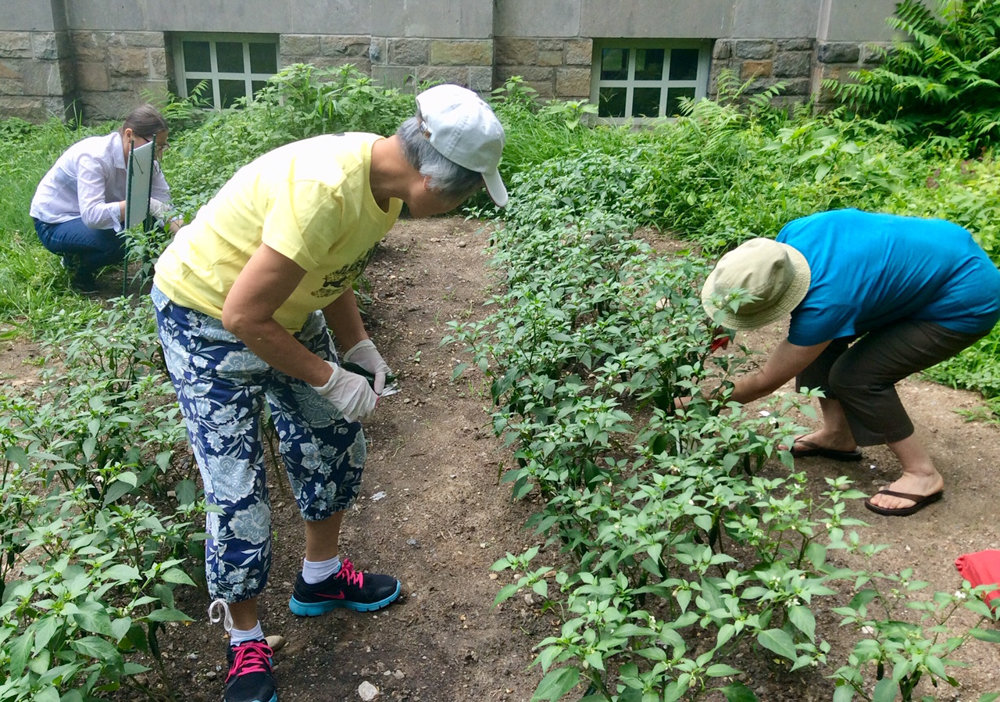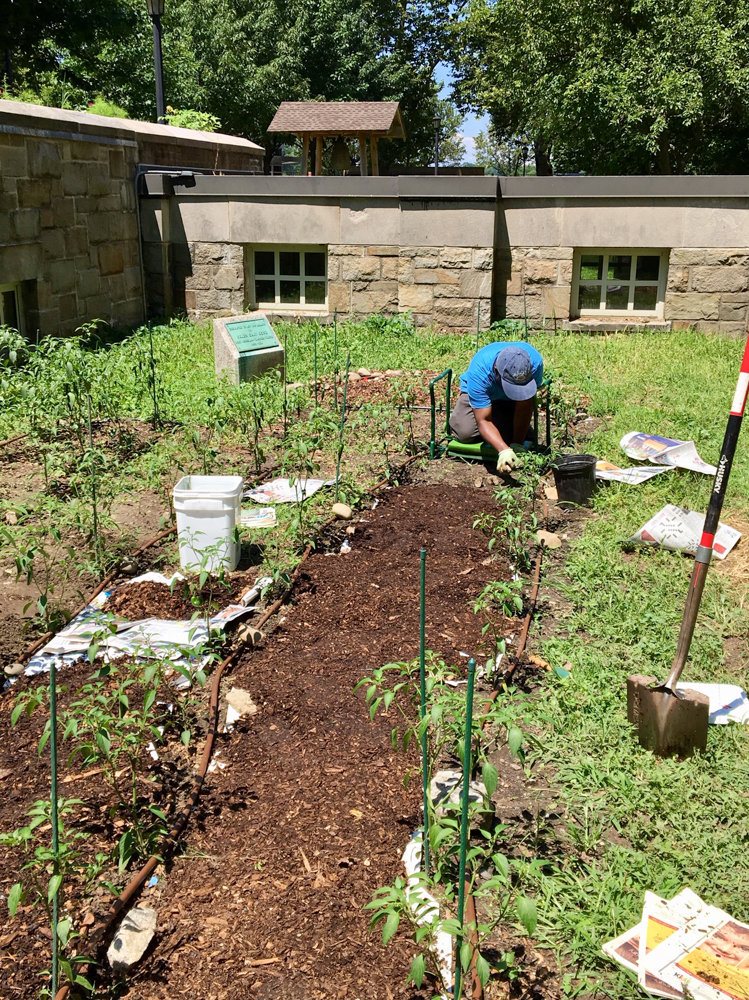Lehman peppers hot sauce market through own garden
Lehman College is built on the foundation of hard work, determination — and spice.
Through a zesty partnership with Small Axe Peppers Hot Sauce — a company that primarily sources all of its ingredients from community gardens — Lehman made room for a pepper patch in its garden in 2014. That puts a little piece of Lehman in every bottle of hot sauce.
“The city is so concrete,” said Catherine Crooks, Lehman’s English as a Second Language instructor. “We buy food from bodegas and supermarkets, and it’s really an eye-opening experience for people to see what it is like to grow food. And to see what it is like to be in touch with the Earth and the soil.”
The Lehman Edible Garden was always on the lookout for new things to include since its creation in 2009 by the health sciences department and the adult learning center. When they came upon Small Axe, the rest was history. The garden lives between the Fine Arts Building and Gate 6.
Small Axe sources peppers from all over the city, but community gardens in the Bronx served as one of the company’s first sites. They work with local nonprofits across the country and provide the pepper seeds at no costs to the hosting garden. After the peppers are grown, Small Axe collects them, and processes them into bottles of hot sauce.
Unlike other vegetables, peppers give more bang for their buck. When processing lettuce or tomatoes, a lot of the produce itself is filtered out. But when 100 pounds of peppers are grown, 100 pounds of peppers are put into the product.
“Our gardeners are really unspoken and unsung,” Small Axe co-founder John Crotty said. “It’s a great part of New York and a way for people to help each other. And you see that when you help, and that’s the kind of spirit they have with us.”
A lot of the gardeners are students, staff and members from the community. Most of the students hail from the adult learning center and are from other countries. The experience of working in the garden helps them grasp English. Many of the gardeners have previous experience planting in their native countries, and so working with the rocky soil is something they do well.
“They learn English because they’re actually speaking with other people,” Crooks said. “They learn the vocabulary and phrases and things they need. They can’t speak English well. And it prohibits them from doing a lot and in this case, they’re mixed with native speakers.”
In addition to teaching language, the garden also is used as a way to study health science for interested students, Crooks said.
But science majors aren’t the only ones who make their way out to the garden. The architecture, art and accounting departments — along with various other groups — also come and grab shovels.
“It’s a very cool thing,” Crooks said. “And it’s very exciting to have a community that isn’t pre-planned or academic-centered. It really opens people up to talk about their lives and their experiences. It’s very rewarding to watch people work with each other.”
The adult learning center is a large part of the garden’s cleanup and soil prep work. Before they were cultivating a 40-plot pepper patch, they were creating other vegetables as well.
“It’s just a very exciting part for the students to see and for me,” Crooks said. “It’s really cool to be involved with people from other parts of the Bronx and to have projects with other people from the Bronx. And to have a community in that way is a really unique community.”
But in addition to the academic and communal benefits of the partnership and the garden itself, there are also mental health benefits for participants. It can help reduce anxiety and depression while keeping them in shape.
“The garden has compounded rock soil and its hard labor,” Crooks said. “To dig the beds, it takes strong dedicated people to really do it. People even walk by and are like, ‘What are you doing and how can I do it too?’”
The gardeners who come to help with the peppers are the definition of community in every sense of the word, Crotty said. They are active and thrive to promote and help one another.
“We have pretty good distribution, and nothing is built in one night,” he said. “The garden has great people that allows us to be pretty successful.
“Being a good gardener means you’re very good at growing plant and healing. These people do great things every day.”









